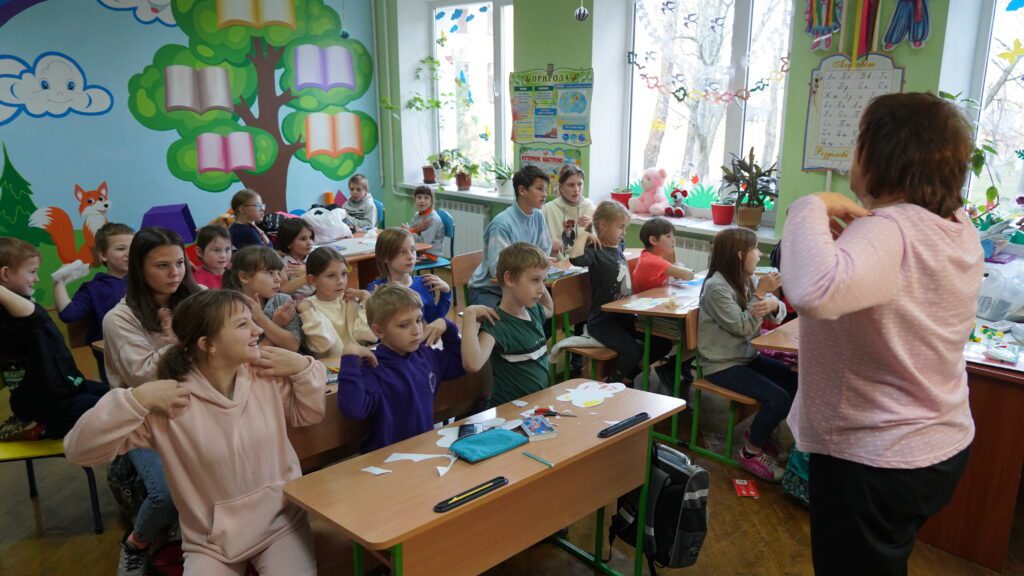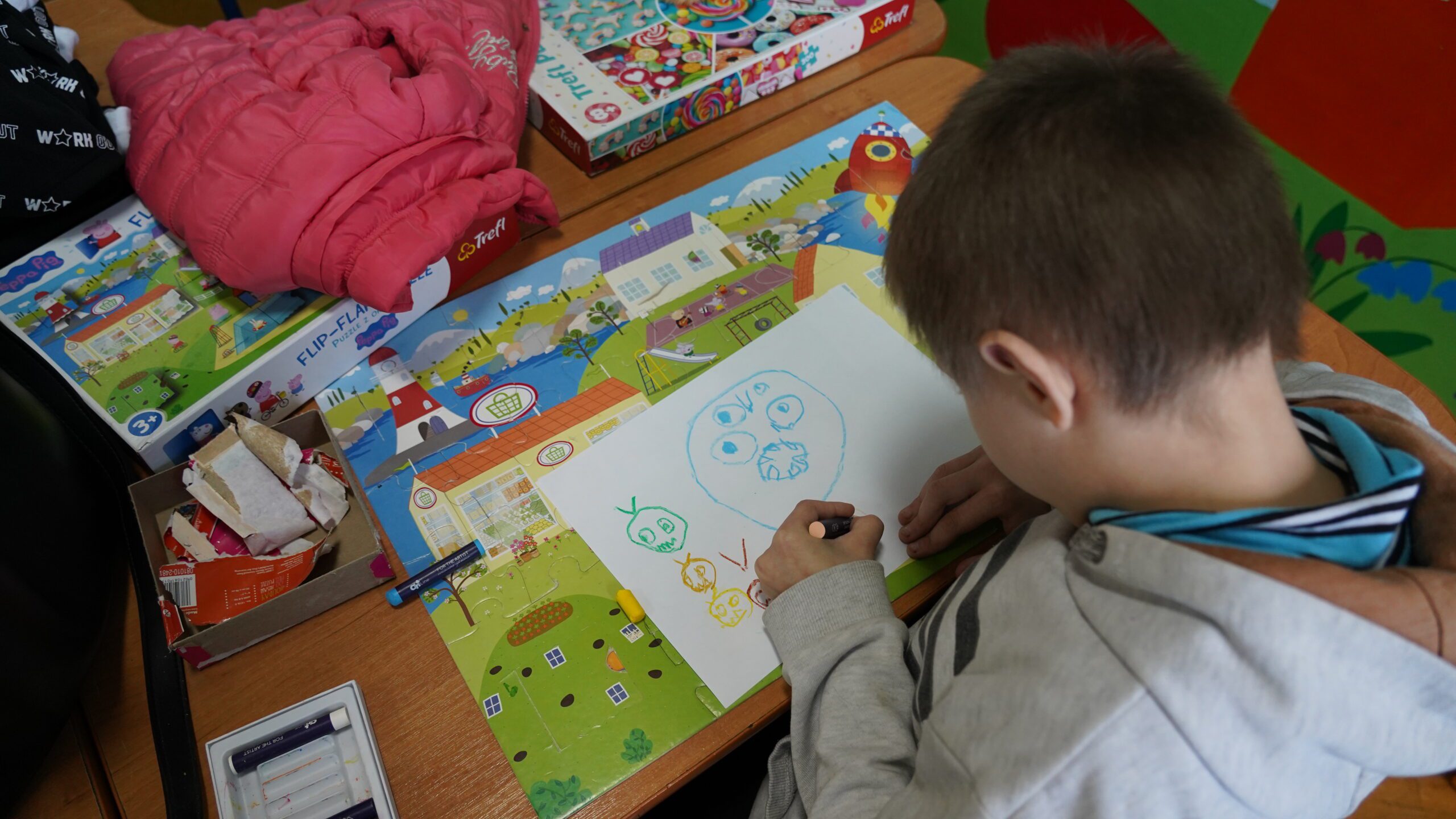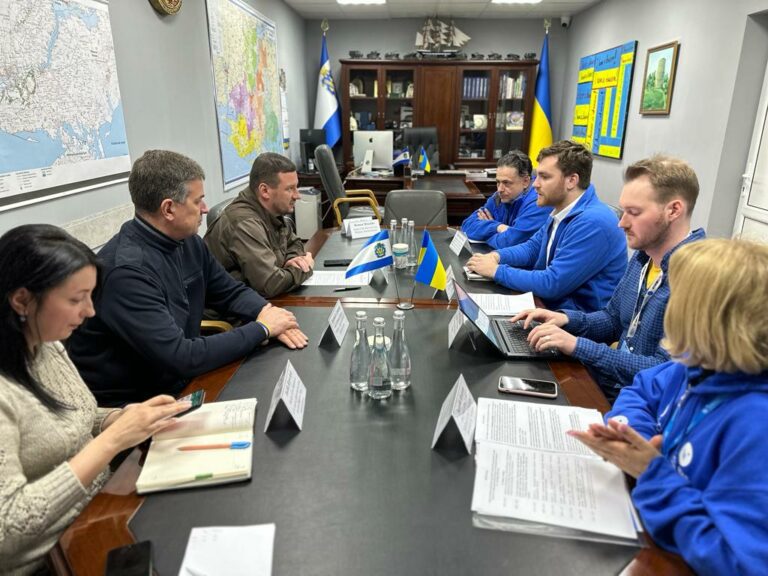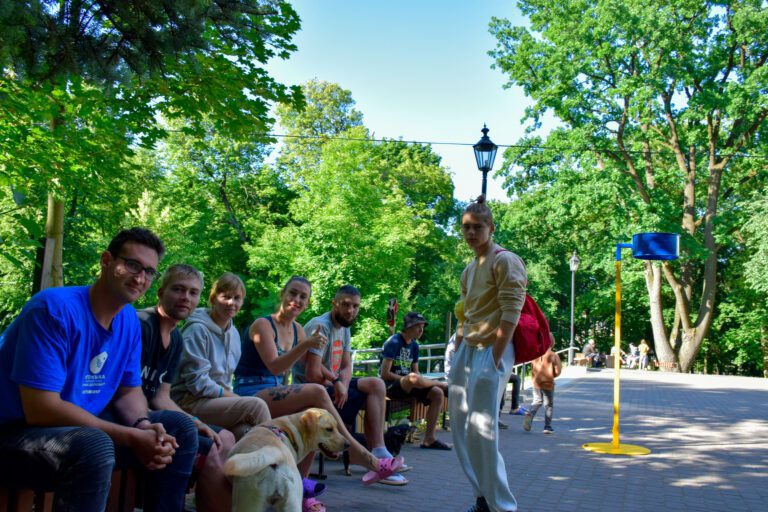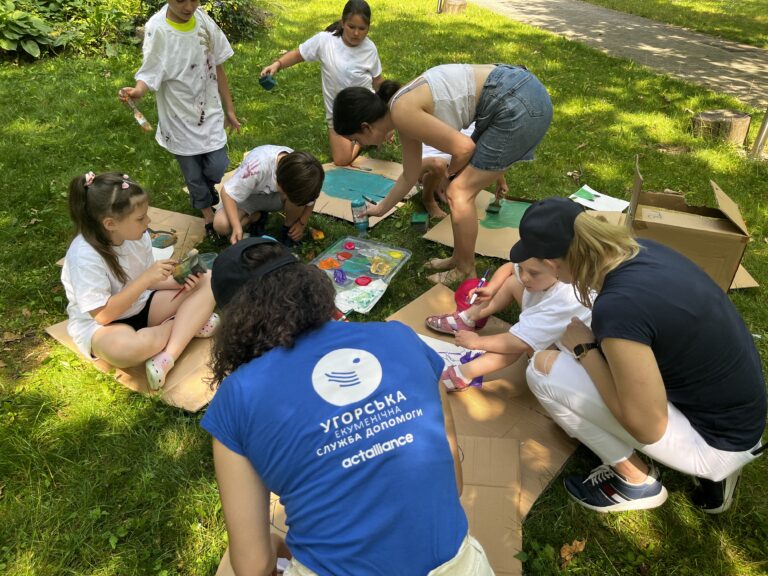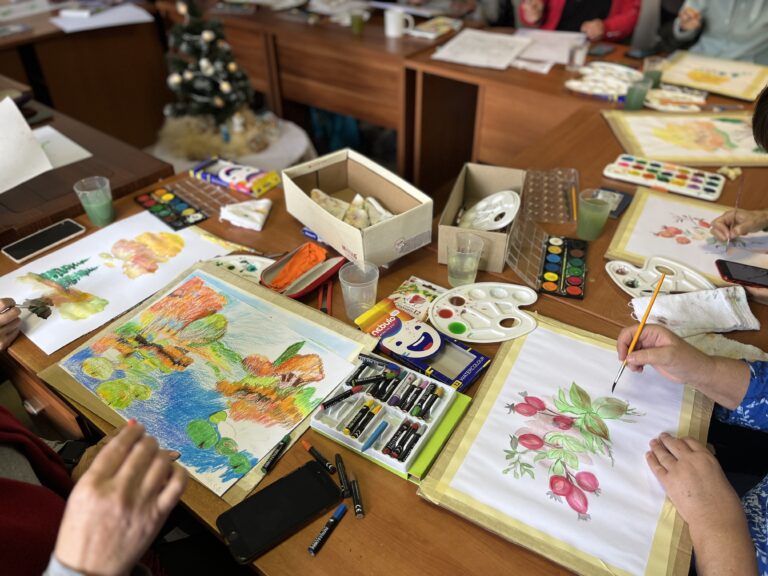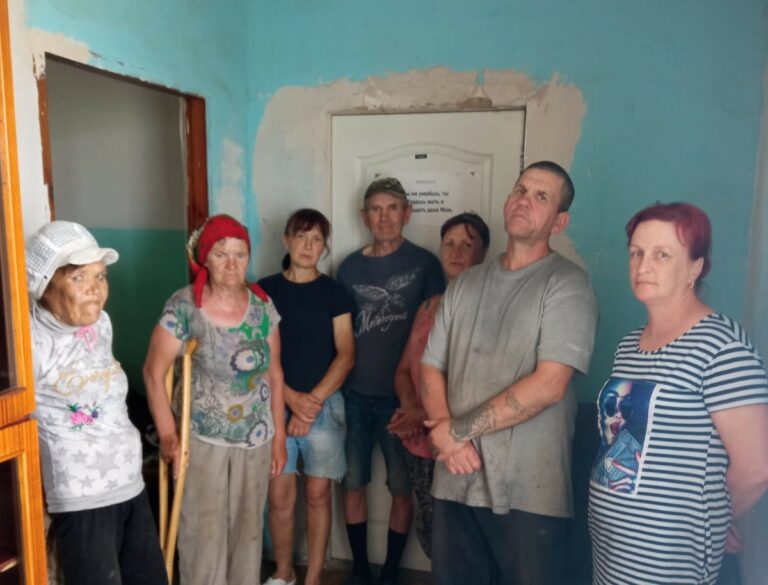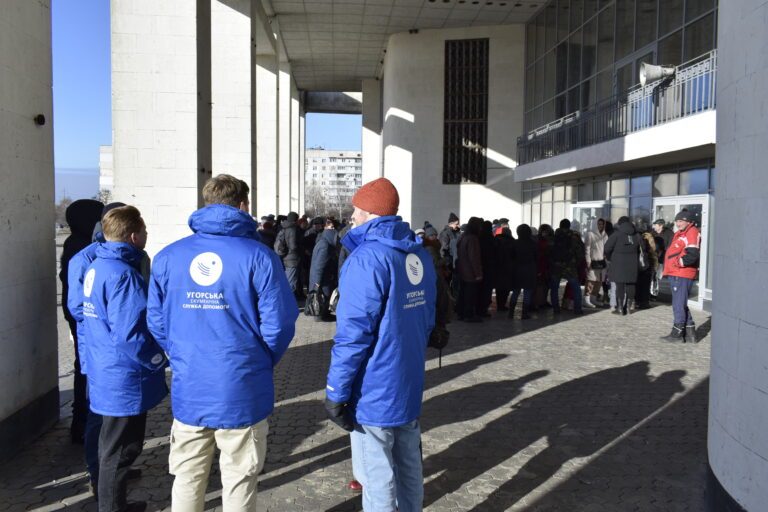Mental & Spiritual Healing on the Foothills of the Carpathians
In the magnificent mountains surrounding Drohobych in Western Ukraine, there is a quiet but steadfast force at work: faith. Supported by ACT Alliance member Hungarian Interchurch Aid through its Flexible Smal Grants programme, Father Ihor and his Greek Catholic Caritas group have created a spiritual and mental refuge for the many displaced people arriving to the region from war-torn eastern and southern Ukraine. The support of Caritas became crucial for the whole region: displaced people and locals, children, adults and orphans alike. On the long and rocky road of recovery they are guided by professionals of the Caritas staff, whose unwavering faith becomes a beacon of hope in the face of challenges.
Anyone in need of psychological, legal and medical support, regardless of their religion, can always seek individual psychological assistance and participate in weekly group sessions at the Caritas office. The staff’s goal is not only to provide psychological help to those that need it, but also to raise awareness to the issues that trouble millions of people affected by the ongoing war.
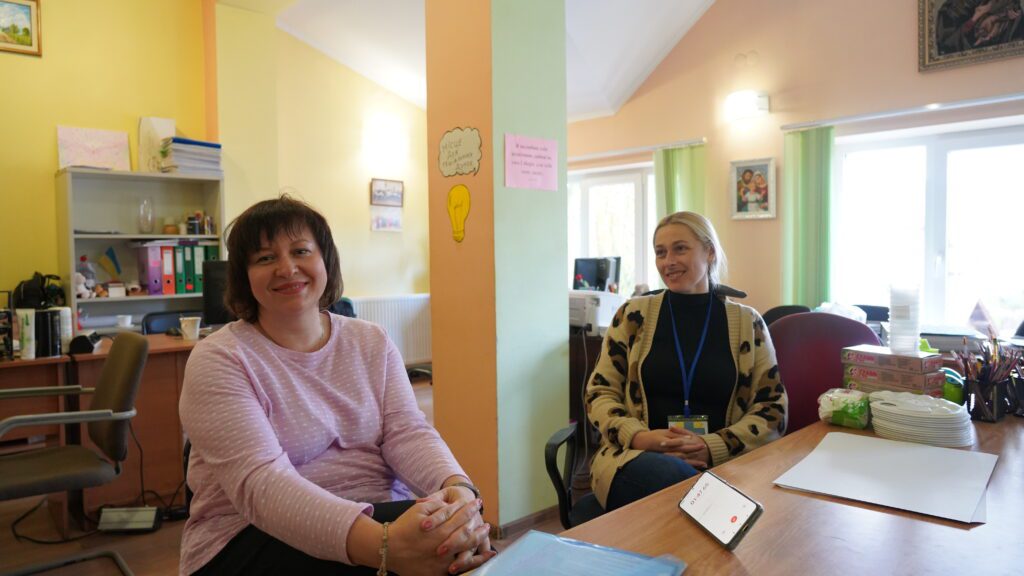

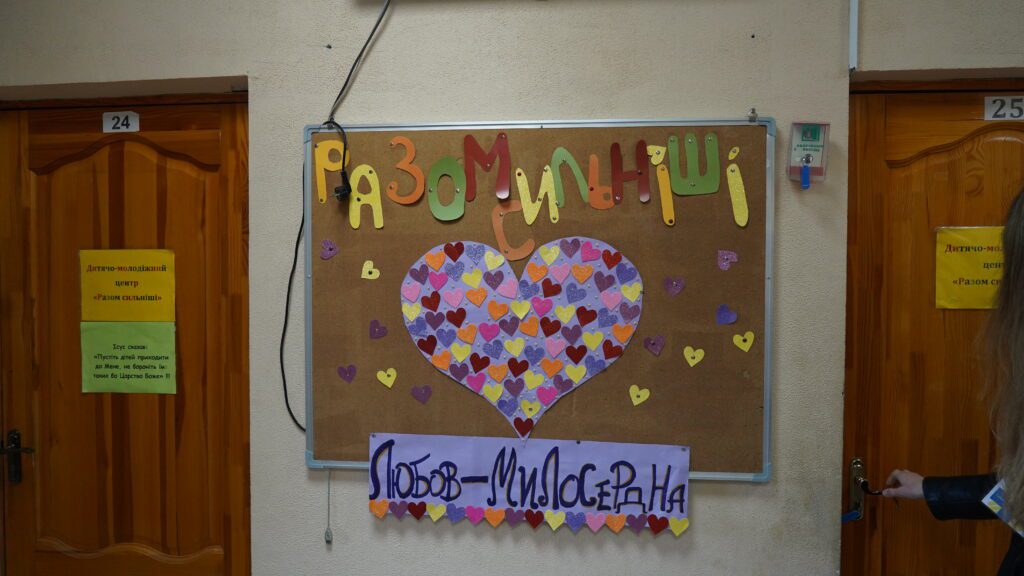

According to WHO estimates, more than 8.5 million Ukrainians are at risk for mental illnesses such as depression, anxiety, and post-traumatic stress disorder as a result of the war. However, problems of mental health seem to be also ignored by a large part of Ukrainian society. Psychologist Uliana recalls the case of Yulia*, a teenager who came seeking psychological help at one of the weekly group sessions supported by ACT Alliance. Her struggle with suicidal thoughts and depression was at first dismissed by her parent, who already placed her under great pressure as the date of entering college closed in on her. Uliana referred her to psychiatric support and a possible prescription of pharmacotherapy, which turned out to be vital in her case. “We had to make a lot of effort to encourage the mother to participate in family therapy and explain what mental complications depression can cause if its symptoms are ignored,” adds psychologist Uliana.
Close to Drohobych, in the boarding school of Naguyevychi, a special group of children also rely on support from ACT Alliance. They were displaced from an orphanage in Kharkiv, and the effects of the war have affected their mental health further. Teachers at the boarding school said the children did not speak to anyone in the first days. “They were as quiet as mice,” which made it difficult for teachers to engage them. As they found an island of peace here – in remote areas of western Ukraine there are no air raid sirens – and after series of therapeutic sessions provided by psychologists, they finally opened up.
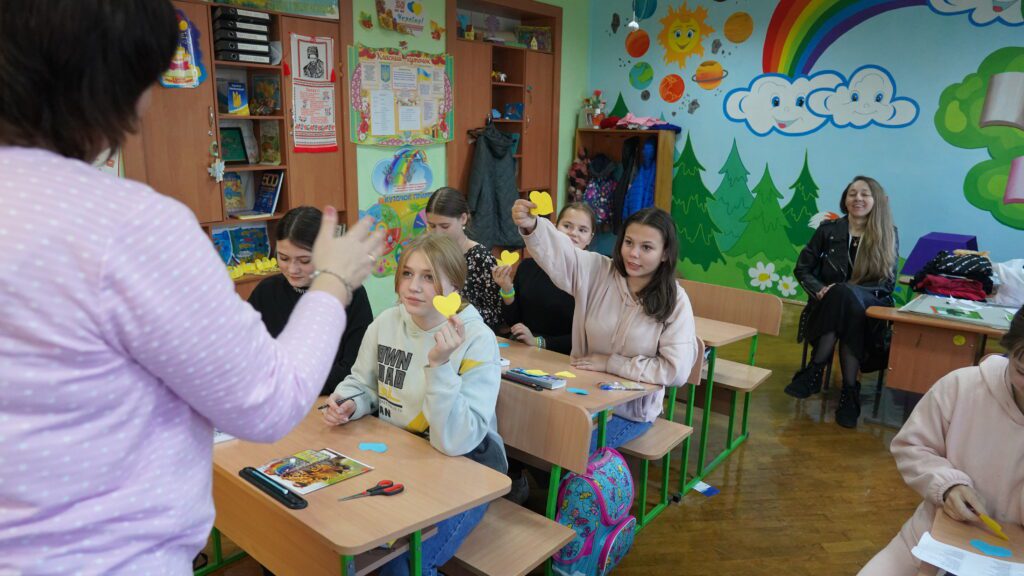

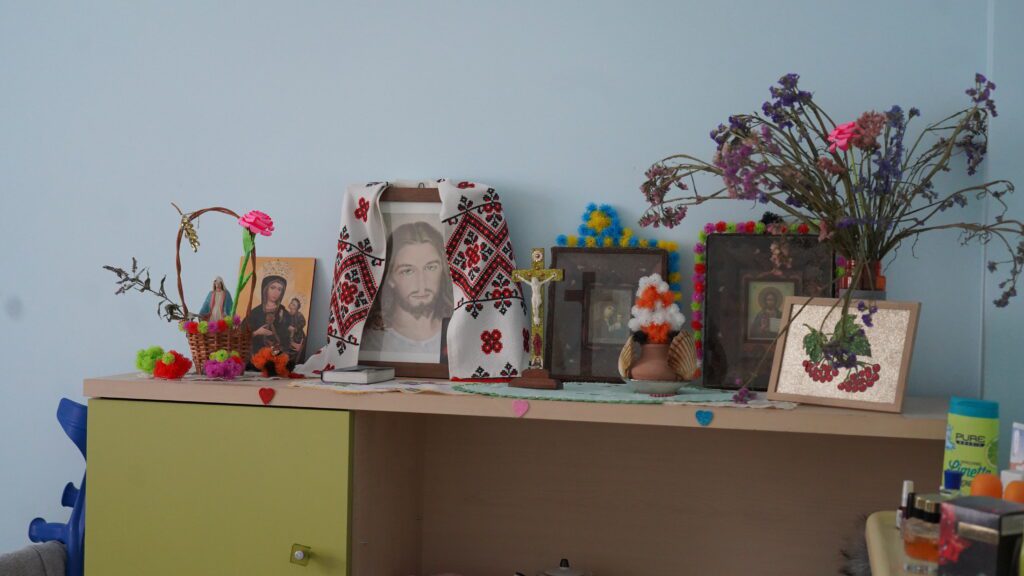

Nadiya and Lyudmyla – both teachers at the school – engaged them carefully, and in this process, they were guided by psychologists of the ACT Alliance-financed programme. “We were afraid to ask them too many questions, not wanting to traumatize their sensitive psyche, which had experienced the horrors of war at such a young age. In the early days, it was difficult for the displaced children to understand us, and for us to understand them. But over time, we found an approach to them and established contact.” Clearly, the orphans from Kharkiv are on the right track now, but this was only possible due to concentrated efforts from psychologists, teachers, management and of course the children themselves.
One of the methods employed in their recovery is art therapy. “For children, the technique of art therapy and movement exercises from the EMDR method works perfectly when we are faced with the task of releasing children’s stress and helping them understand their feelings and release their pent-up emotions,” notes Natalia, who leads the sessions with the children.
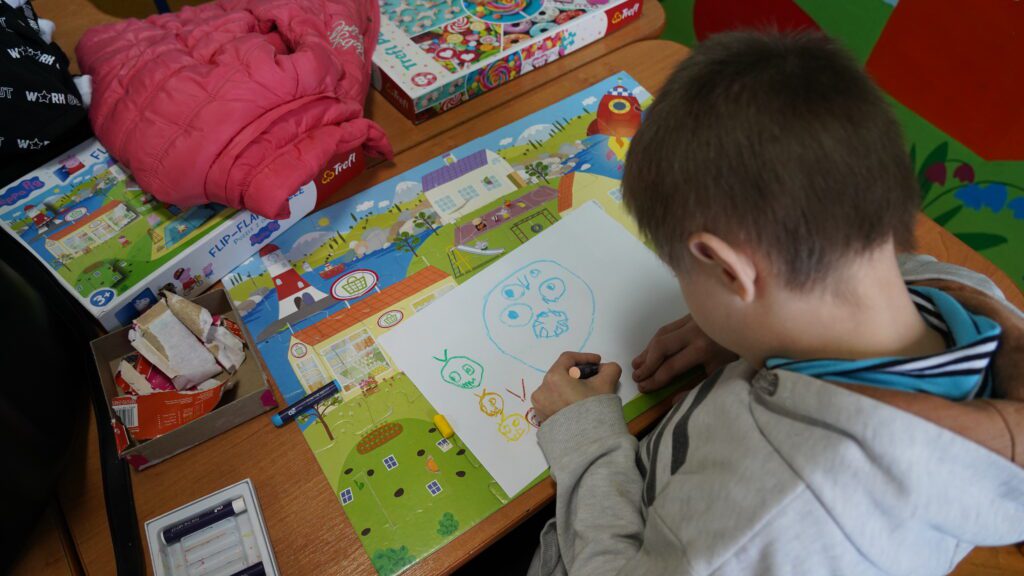

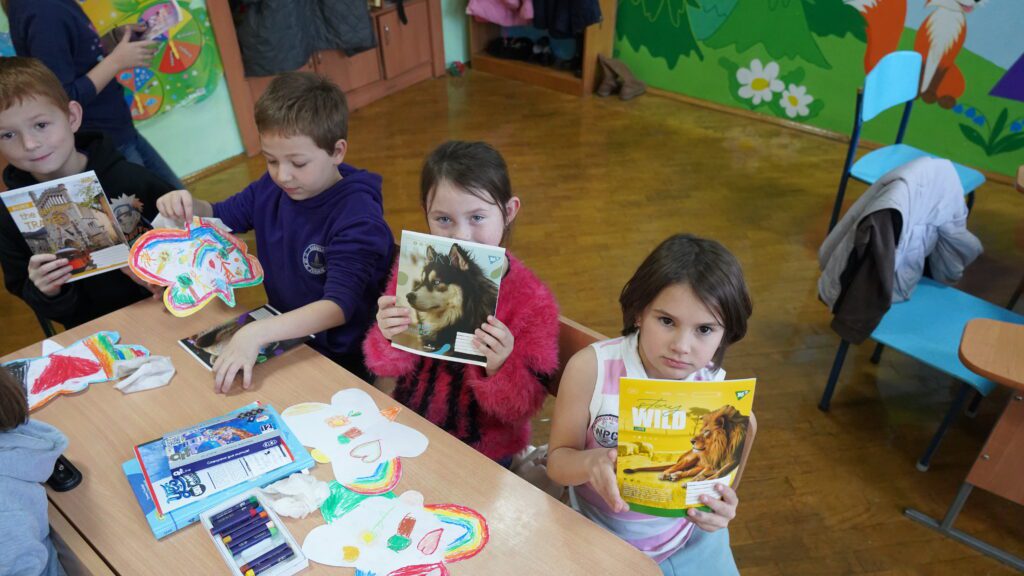

Nevertheless, working with people, especially troubled and mentally unstable clients affects the staff, and many of them also rely on spiritual guidance to overcome difficulties. Daily prayers and Bible studies are a regular practice for the them, including psychologists, for whom faith in God has been a lifeline since the beginning of the war. “In the darkest moments, my faith supported me. It has given me the strength to face each day with hope, knowing that God has a plan for my life, even in the midst of chaos.” – says Lilya, who happens to be an IDP herself. She fled Kyiv and ended up in Drohobych by accidentally dialling the wrong number and was accepted by a shelter here. “God brought me here so that I could be useful to other people and support IDPs like myself, because I understand their needs and emotional experiences like no one else.”
Father Ihor Kozankevych, director of Caritas Drohobych and spiritual advisor to all clients and staff has witnessed the transformative power of faith. “It is not just a set of beliefs; it is a source of inner strength that gives people the ability to overcome their deepest wounds. In times of despair, it is faith that helps us find hope and purpose beyond the immediate challenges we face. If you have faith, no one can knock the ground from under your feet.” Natalia, a psychologist in Caritas’ staff agrees. “When death in form of a missile flies overhead, there is nothing left but prayer and faith in God. For the first time in my life I turned to faith and realized how much I lacked it before the war.”
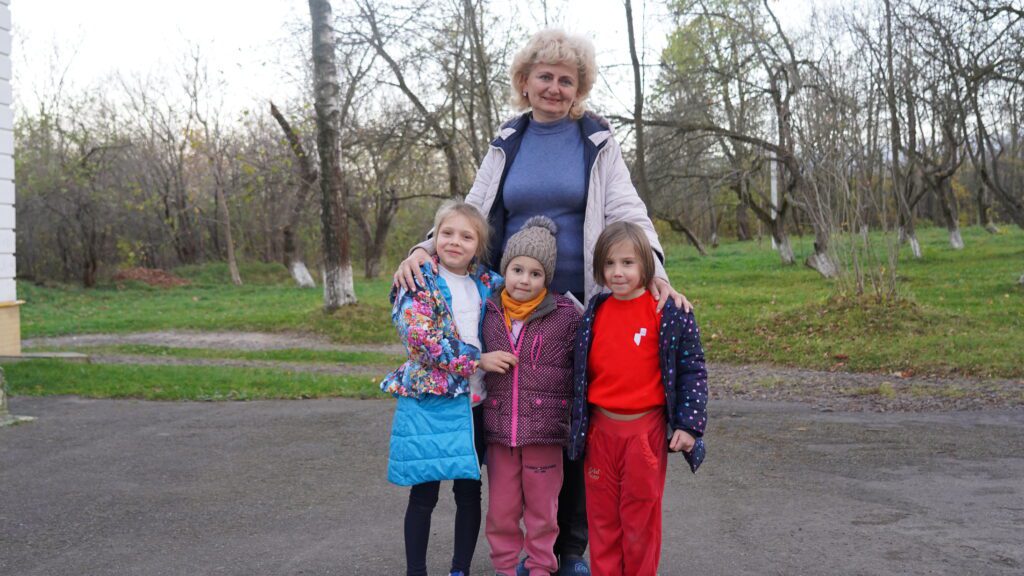

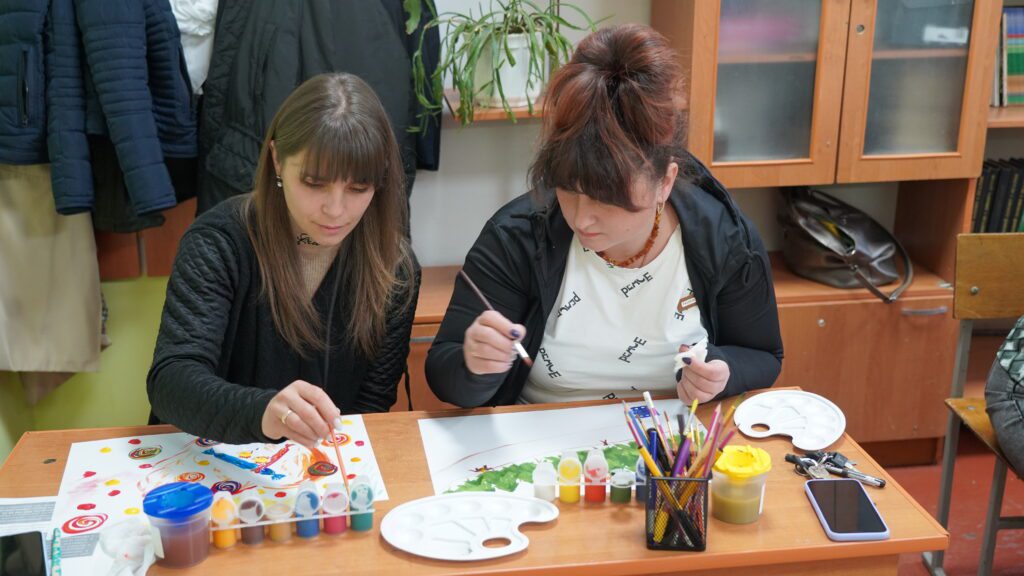

Faith is a support system that gets someone through their difficulties in the now, but with psychological methods, a deep-cleaning of the “wounds” sustained during their service is possible. Teachers and staff are also participating in a similar form of art therapy as the kids they take care of. “It may seem that drawing scribbles and doodling is a very simple technique for psychology, but this is the point — to involve our inner child in the creative process. To activate the subconscious mind, free the cerebral cortex from constant information processing and pour out our stress on paper, resorting to emotional reflexes for relaxation» – explains project psychologist Liudmyla about the purpose of the chosen type of therapy for adults.
The trauma of war leaves permanent scars, both visible and invisible. For those who have been torn from their homes and communities, the road to healing is complex and not straightforward. In the midst of this struggle, faith in God and the psychological support of the mental health professionals of the Caritas Drohobych team has been a powerful catalyst for psychological recovery, providing a sense of purpose, community and resilience needed to rebuild shattered lives and return to normalcy.
